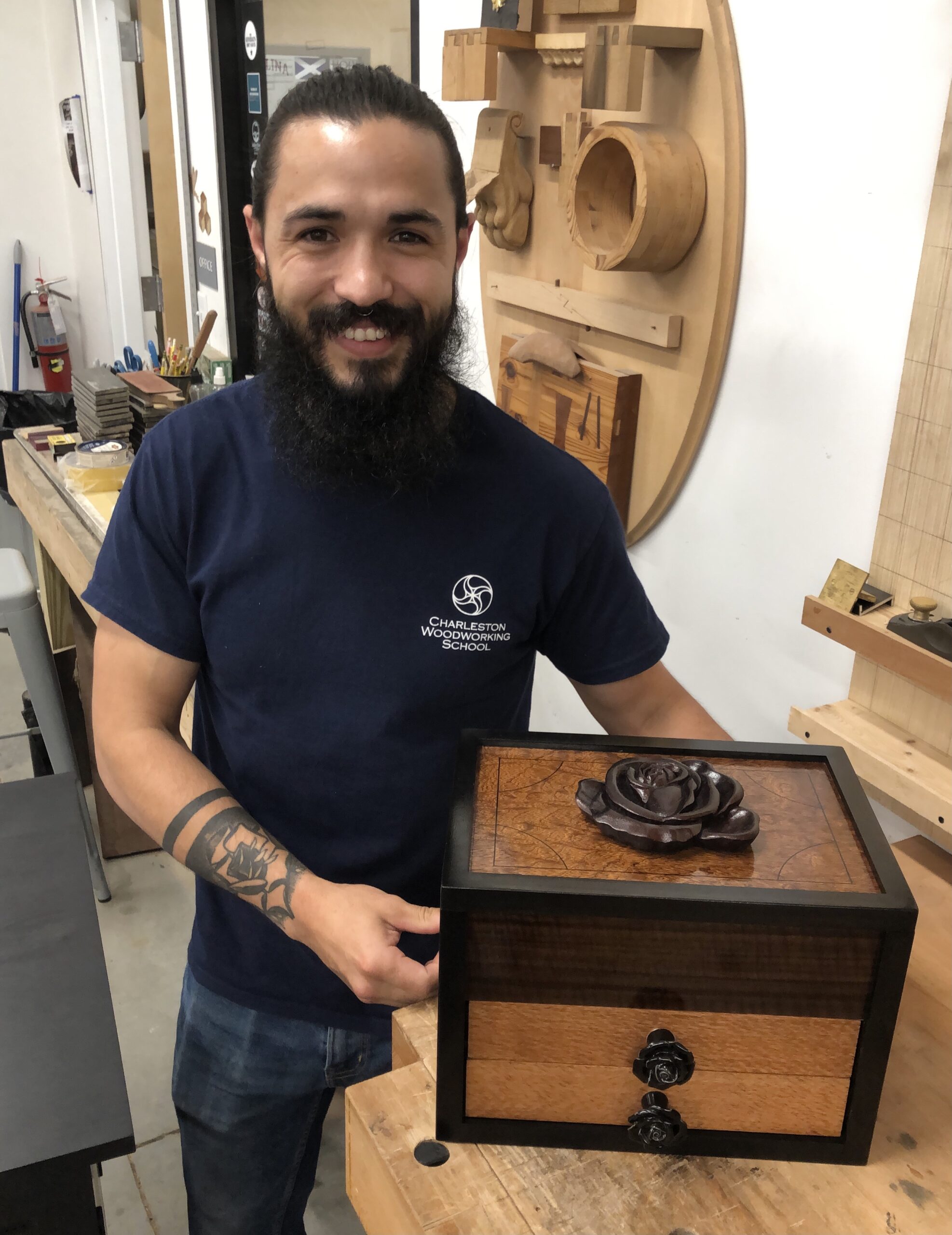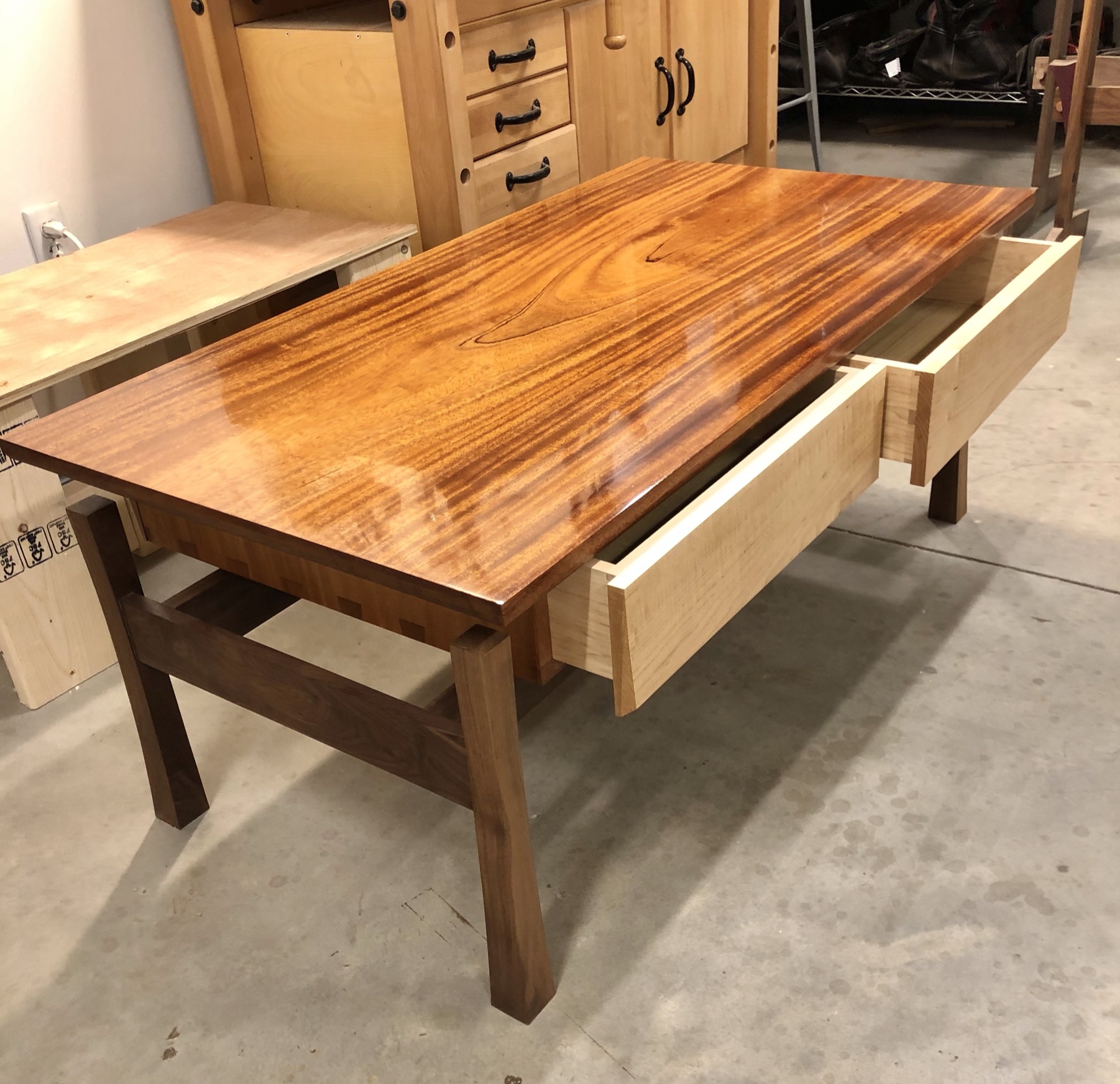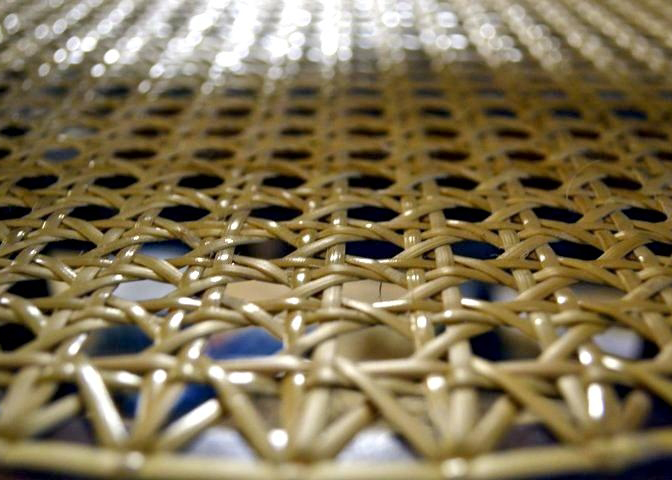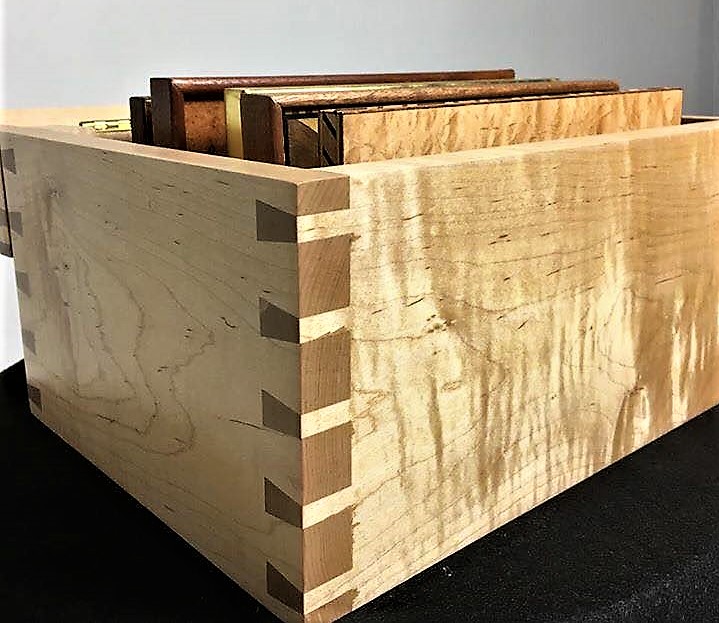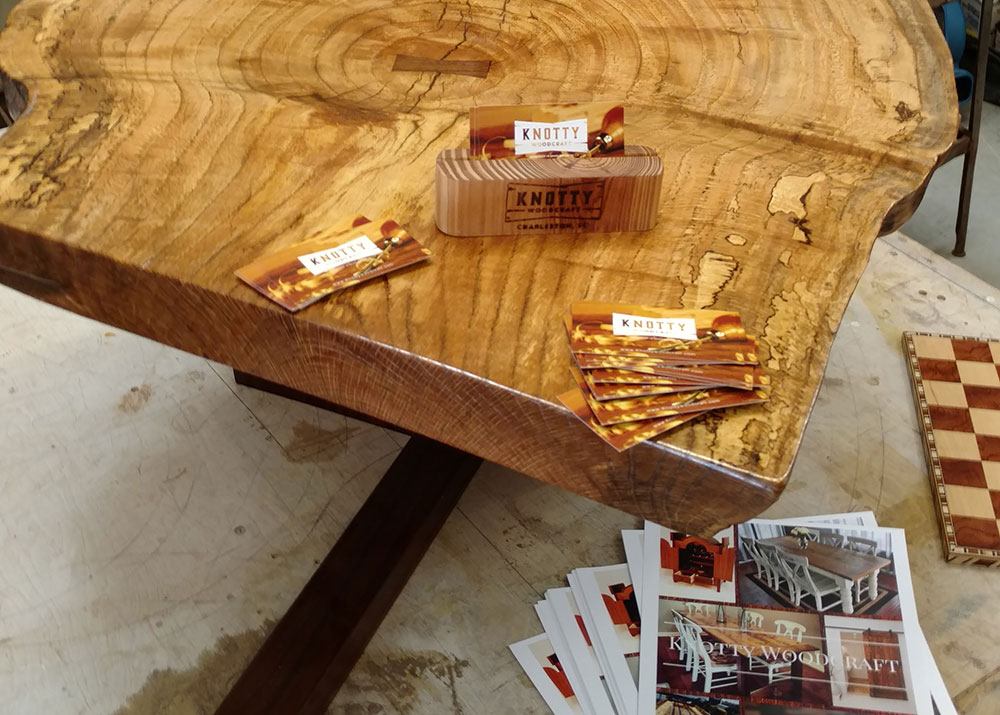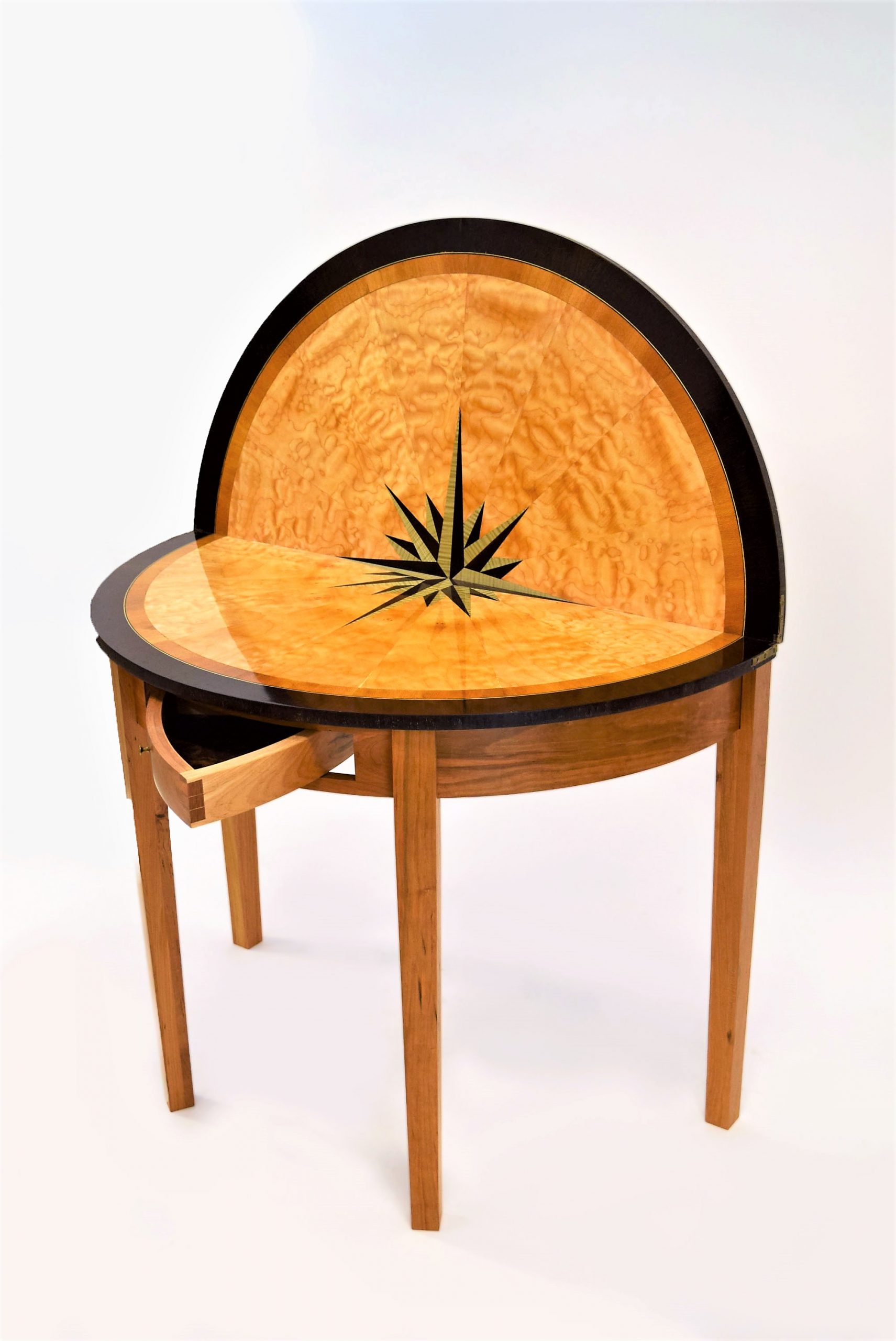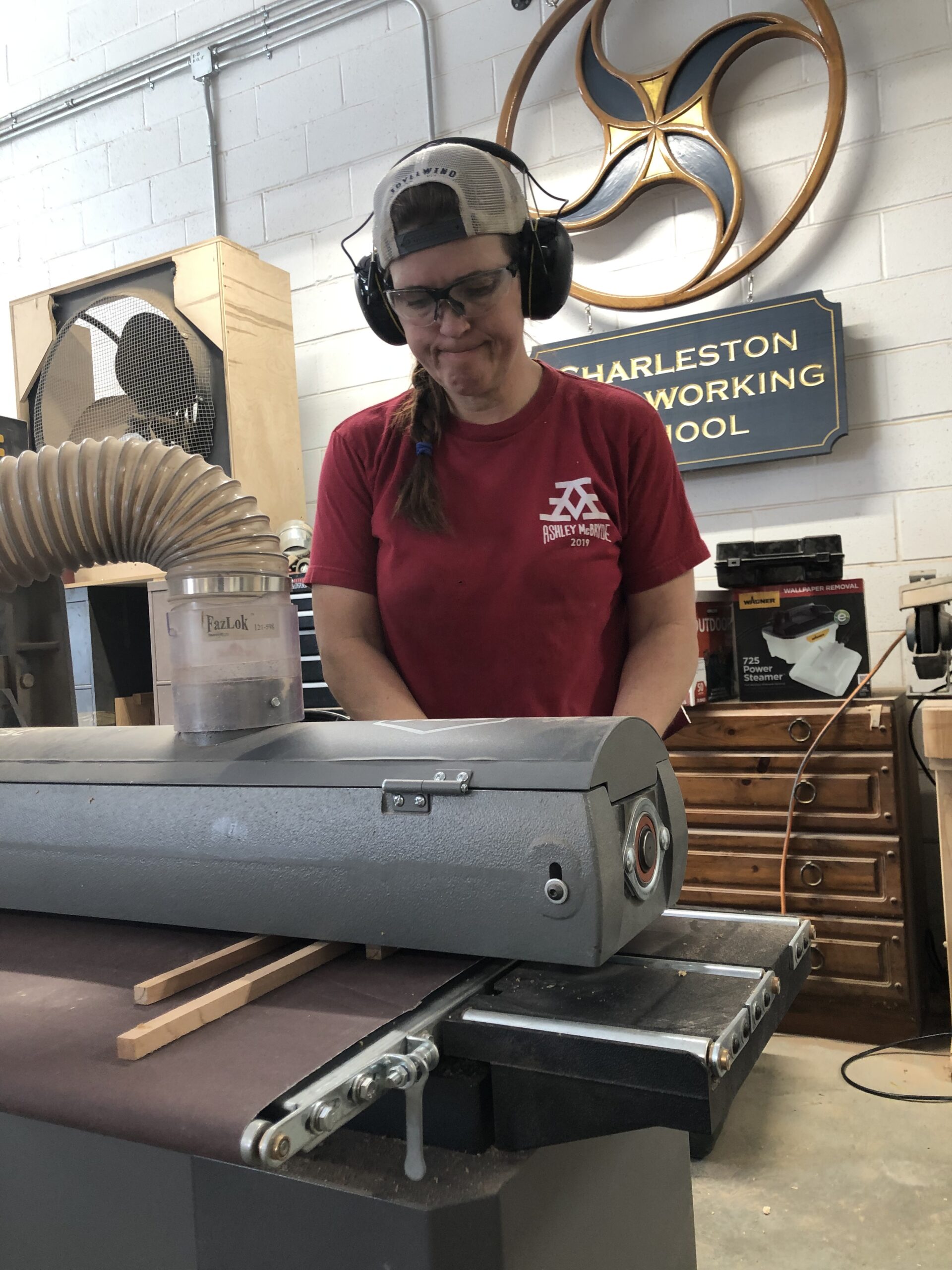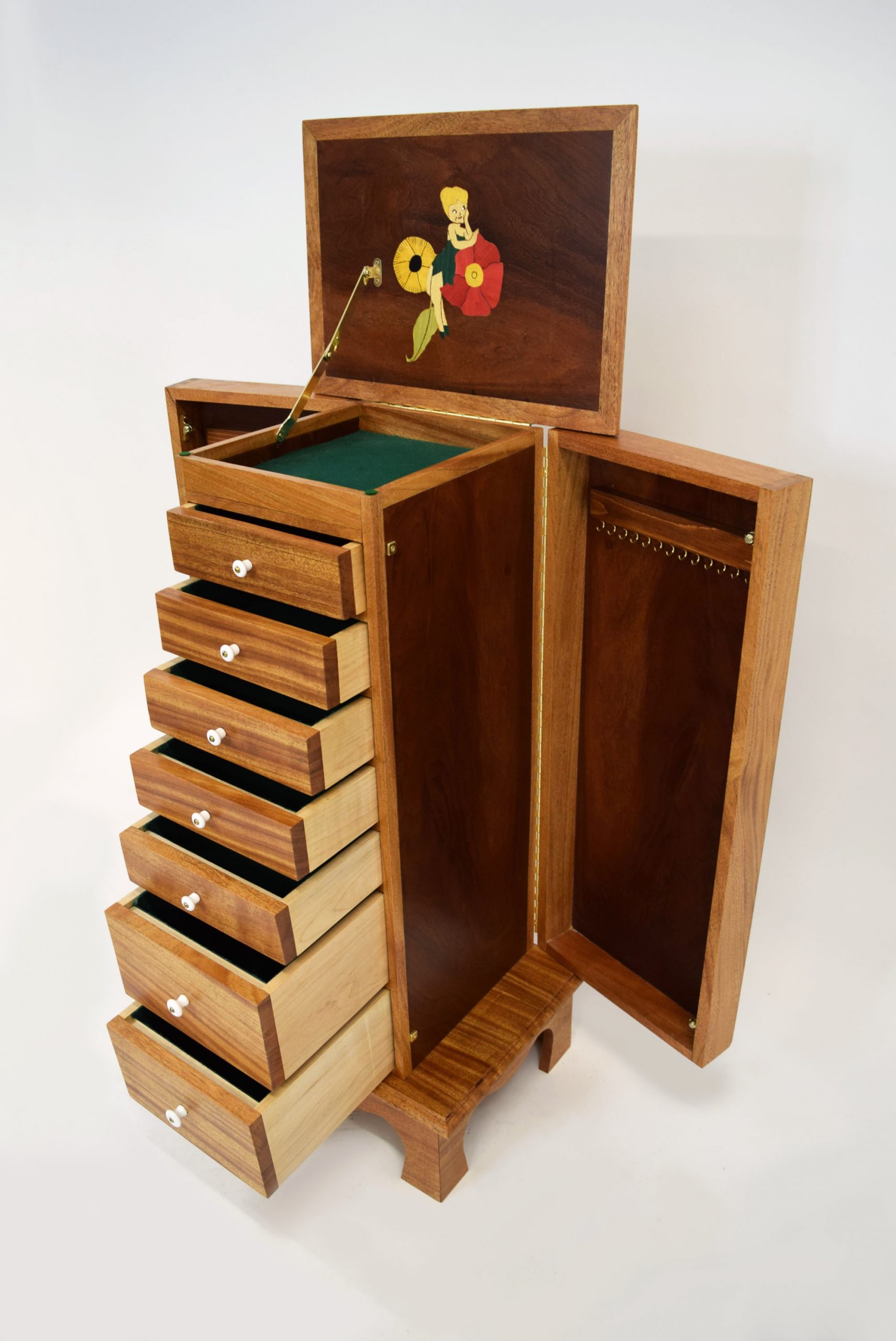The Charleston Woodworking School has been designed to give the student a first class education in the specifics of woodworking. Emphasis is placed on the student’s initiative in the classroom and in the woodworking shop. At the conclusion of the weekly nine-month course, the graduate will have the basic skills to continue working in the areas of furniture design, furniture making, antique restoration and repair, specialty wood projects, project management, and marketing. Additional, more advanced courses, are also available to students following the completion of the initial course.
All students at the Charleston Woodworking School will develop skills in furniture design, from traditional to contemporary. Design classes include specialized history of furniture and furniture makers, so the student will be able to gain a strong appreciation in the design arena.
A big part of the professional woodworker is the ability to build quality furniture, utilizing a variety of wood. Classroom instruction compliments practical instruction, and each student will be required to design and build a major furniture project during each of the three semesters.
Antique Restoration and Repair
The skill required to restore and repair antiques should not be left to the novice. The CWS instructs each student in the proper way to restore antiques, and to make repairs when necessary for the integrity of the piece. Great care is taken in this level of instruction sine it is a big part of the professional woodworker’s business.
Specialty wood projects and project management
Each student is encouraged to make several projects on their own, including time after class. The school will be open after hours to enhance the student’s project development, in addition to the projects assigned by the faculty.
In addition to learning the specifics of furniture making and various woodworking projects, students at the CWS learn the value of marketing their products to potential customers. Lecturers in marketing will teach all students how to “get the word out” about their new business, focusing on interior designers, home builders, antique dealers, and individuals.
Pre-requisites and Requirements
Applicants must demonstrate enthusiasm and a willingness to learn. Previous woodworking experience is not a pre-requisite for entry into our intensive program; however, a basic understanding of furniture building and design is strongly encouraged. You are required to submit a statement of purpose describing your reason for applying, previous experience, and personal goals in furniture design.
Please attach your personal portfolio if you have one. All students must be at least 18 years old and have health insurance. Students must also provide sufficient credit information for tuition costs.
Course dates for the current 2025-26 Intensive
Fall Semester: September 8– December 12, 2025
Winter Semester: January 5– March 27, 2026
Spring Semester: April 20– June 5, 2026
During this intensive woodworking program you will be able to maximize your time and money in an 9 month course. We are able to provide this to you by keeping our class size small and by providing one on one instruction. You will receive approximately 1100 hours of class and practical bench-work. There will also be multiple field trips to historic homes and an overnight tree harvesting seminar.
VIEW FULL SCHEDULE & TUITION
DAILY SCHEDULE AT THE CHARLESTON WOODWORKING SCHOOL
A typical day for students includes a combination of classroom instruction, hands-on experience, and personalized learning. We believe each student’s education is maximized by working at their own pace, in conjunction with a structured learning environment. Each student is assigned their own personal workbench. Work interaction between students is highly encouraged.
Several unique disciplines of woodworking are incorporated into each course. Gilding, antique restoration and repair, and carving techniques are all part of the advanced curriculum.
VIEW DAILY SCHEDULE


